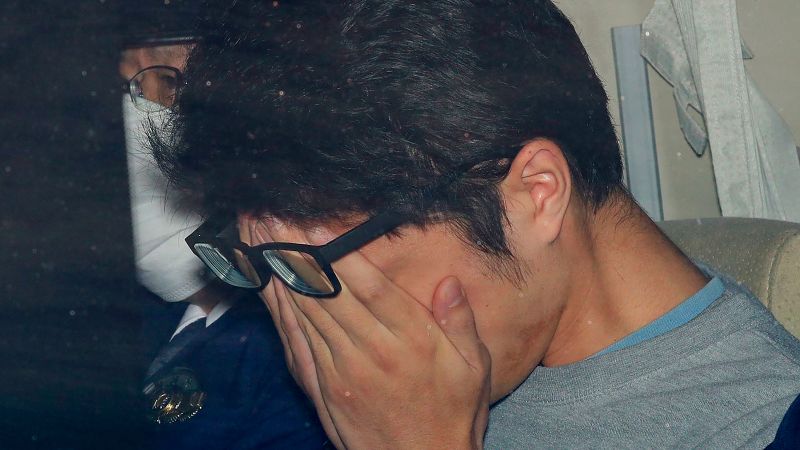Tokyo, Japan – In a significant legal development, Japan has carried out the execution of Takahiro Shiraishi, known as the “Twitter killer,” marking the country’s first use of capital punishment in nearly three years. Shiraishi, 34, was convicted of murdering and dismembering nine people, predominantly women, and was hanged on Friday at the Tokyo Detention House.
Immediate Impact of Execution
Shiraishi’s execution concludes a case that has gripped the nation since his arrest in October 2017. He was sentenced to death in 2020 after pleading guilty to the gruesome murders of eight women and one man. The case raised significant concerns about the use of social media platforms, as Shiraishi used these to contact his victims.
Key Details Emerge
Police discovered the horrific scene at Shiraishi’s residence in Zama, Kanagawa Prefecture, while investigating the disappearance of a 23-year-old woman who had expressed suicidal thoughts on social media. Inside, officers found three cooler boxes and five containers with human remains, including heads and bones.
Shiraishi used a social media handle that loosely translates to “hangman,” luring victims to his apartment under the guise of helping them end their lives.
By the Numbers
The victims, aged between 15 and 26, had posted online about their suicidal thoughts, making them vulnerable to Shiraishi’s manipulations. The case highlighted the dark potential of social media as a tool for predation.
Industry Response and Legal Proceedings
Following his arrest, Shiraishi admitted to killing his victims to satisfy his sexual desires. His lawyer initially appealed the ruling, but the appeal was later withdrawn, finalizing the death sentence. Justice Minister Keisuke Suzuki emphasized the serious nature of the crimes and the societal impact.
“This case, driven by selfish motives such as sexual and financial gratification, resulted in the deaths of nine individuals over two months – a deeply serious incident that has caused shock and anxiety across society,” Suzuki stated.
Background Context
Japan’s use of the death penalty remains controversial, with executions carried out by hanging. The process is shrouded in secrecy, with dates undisclosed until after the execution. Families and lawyers are often notified post-execution, adding to the debate on transparency and human rights.
What Comes Next
The execution has reignited discussions about capital punishment in Japan and the role of social media in society. The father of one victim expressed a desire for Shiraishi to have spent his life reflecting on his crimes, rather than facing execution.
Shiraishi’s execution is the first since July 2022, highlighting the rarity and controversy surrounding capital punishment in Japan.
As Japan continues to grapple with these issues, the case serves as a stark reminder of the potential dangers lurking in the digital age. Authorities and social media platforms face ongoing challenges in preventing similar tragedies.
Editor’s Note: Help is available for those struggling with suicidal thoughts or mental health issues. In the US, call or text 988, the Suicide & Crisis Lifeline. Globally, contact the International Association for Suicide Prevention and Befrienders Worldwide for crisis support.
